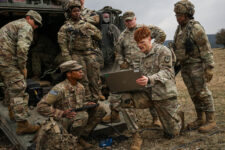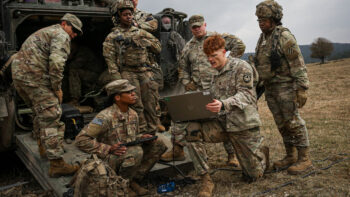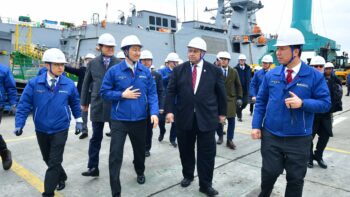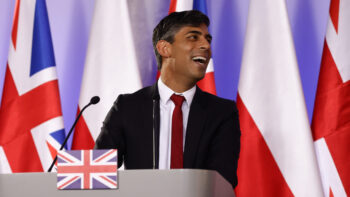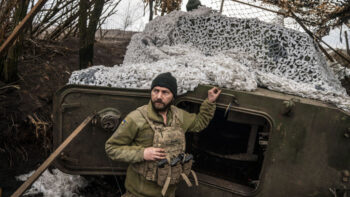![]() AUSA: “Russia has used political, economic, and military tools to undermine the sovereignty and territorial integrity of neighboring countries, flouted international legal norms, and destabilized the European security order by attempting to annex Crimea and continuing to fuel further violence in eastern Ukraine.”
AUSA: “Russia has used political, economic, and military tools to undermine the sovereignty and territorial integrity of neighboring countries, flouted international legal norms, and destabilized the European security order by attempting to annex Crimea and continuing to fuel further violence in eastern Ukraine.”
With those words, Defense Secretary Ash Carter captured the enormous shift in the US military’s assessment of Vladimir Putin’s Russia in the last few months.
The head of US Army Europe, Lt. Gen. Ben Hodges, put it more colloquially: “Until about two years ago we all thought Russia was going to be our partner, our friend,” he said. Then came the invasion and de facto annexation of Crimea. But that was “just a symptom” of a deeper problem, Hodges went on. What American policymakers have discovered once again is that the Russians — going back to the czars — “are who we always thought they were, and we’re having to deal with it.”
Because of Putin’s aggressive moves, most lately in Syria, American officials are having to respond. Today, US defense officials held a third secure video conference with Russian Ministry of Defense officials “to promote safe flight operations over Syria,” Pentagon spokesman Capt. Jeff A. Davis said in a statement to reporters. “Progress was made during the discussions, which were professional and focused narrowly on the implementation of specific safety procedures.”
That’s one effort to deal with one example of a more troubling pattern. “We’ve seen increasingly unprofessional behavior from Russian forces. They’ve violated Turkish airspace – which, as we strongly affirmed last week in Brussels, is NATO airspace. They’ve shot cruise missiles from a ship in the Caspian Sea without warning. They’ve come within just a few miles of one of our unmanned aerial vehicles,” Carter said today. “Russia has the opportunity to change course and rejoin the track toward a political transition in Damascus. I don’t know if they will. From the Kamchatka Peninsula through South Asia, into the Caucasus and around to the Baltics, Russia has continued to wrap itself in a shroud of isolation. And only the Kremlin can decide to change that.”
Meanwhile, Army leaders are trooping to Europe, seeking lessons from Ukraine that will shape future deployments, training, and procurement.
“Gen. Odierno was over recently, (Army Chief of Staff) Gen. (Mark) Milley is coming over in a couple of weeks,” Hodges told me colleague Sydney Freedberg. “The commandant of the artillery school’s been over. The commandant of the engineer school is coming over in the next couple of weeks. We’ve had the head of the armor school (already). Gen. (David) Perkins (head of TRADOC) has been over.”
“We had a meeting in the Pentagon last week” on how to incorporate those lessons into training, Perkins said.
‘AI-BOM’ bombs: Army backs off, will demand less detailed data from AI vendors
Instead of demanding an exhaustive “AI Bill of Materials.” the Army will only ask contractors for a “baseball card” of key stats on their AI — while building up its in-house capacity to check for bad code or “poisoned” data.

